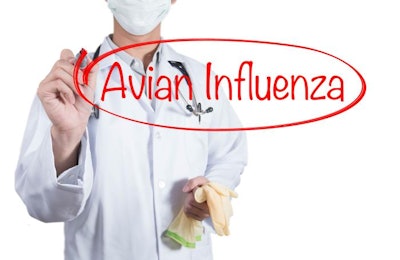
Over the last full three-month period (April to June of 2022), there were no new outbreaks of HPAI in South Africa. This is according to the industry body, the South African Poultry Association (SAPA) in its latest Poultry Bulletin.
While the news will be welcomed by the nation’s poultry farmers, SAPA warns that HPAI could return at any time.
HPAI viruses are known to be circulating in other parts of the world. Furthermore, SAPA alerts its members to the new risk of milder forms of the disease — low-pathogenic avian influenza (LPAI) virus. This, it says, has already spread to sub-Saharan Africa from North Africa and the Middle East. Now circulating is the H9N2 LPAI virus serotype, which has been detected in Burkina Faso in West Africa, as well as the East African state of Uganda.
As a result of these risks, SAPA warns its members to maintain biosecurity protocols, and to continue to comply with surveillance testing.
Last commercial outbreak in South Africa in February
South Africa’s most recent HPAI in a commercial flock was in February of the year, according to SAPA in its latest bulletin.
Over the period March 2021 to June 2022, almost 3.74 million of the country’s poultry were culled, equivalent to 2.6% of the national chicken flock. This total comprises more than 2.9 million (9.6%) of South Africa’s egg industry birds, and 800,600 meat chickens (0.6%). Of the latter total, almost 510,000 of the losses were broiler breeders (both mature and in the rearing phase), and 219,000 were broilers.
Since March of last year, South Africa’s animal health agency has officially registered a total of 89 outbreaks of HPAI in commercial poultry. Linked to the H5N1 virus serotype, these have directly impacted around 4.96 million birds, according to notifications to the World Organisation for Animal Health (WOAH).
Since July, the authorities have reported four new outbreaks to WOAH.
Most recent were two outbreaks in the same district of KwaZulu-Natal province in the east of the country. Starting in early to mid-September, poultry tested positive for the virus from flocks of 10,000 and 23,000 birds.
In early August, there was an outbreak in a small flock in another district of the same province. Previously, in July, three out of 573 ostriches at a commercial farm in the Western Cape tested positive for the virus.
Furthermore, the same virus serotype has been linked to cases of HPAI in wild birds and backyard poultry flocks at 70 locations in South Africa since May of 2021. Among the more than 20,000 bird deaths in this disease series have been mass mortalities of wild seabirds, particularly cormorants and pelicans.
Further cases reported in Nigeria
Based on reports to WOAH, there have been 294 confirmed outbreaks of HPAI in poultry in this West African state over the past three years.
In the ongoing disease series, the H5N1 virus serotype was first detected in Nigeria in December of 2020. Directly impacted through mortality or culling since then have been more than 2.26 million poultry.
Outbreaks have been reported to WOAH in 28 of the country’s 37 regions.
Latest official report to WOAH covered three outbreaks at farms in different states starting in the period August 9-22. Directly impacted were around 36,500 poultry.
At the end of August, a previous notification from the Nigerian authorities outlined a total of 28 outbreaks in the country starting between January 29 and August 7 this year. As well as two outbreaks in wild birds, these hit 15 commercial farms — each with between 850 and 5,500 poultry — and 11 backyard flocks, each with 26-3,200 birds.
HPAI situation elsewhere in Africa
Periodically, the United Nations’ Food and Agriculture Organization (FAO) publishes an overview of the HPAI situation in sub-Saharan Africa.
According to its latest update (dated September 14), there have been 40 HPAI outbreaks caused by the H5N1 virus variant in Guinea over the past 12 months. In outbreaks reported as recently as July of this year, affected have been chickens and other unspecified domestic birds.
Earlier this year, the West African state of Guinea reported its first ever cases of HPAI caused by the H5N1 virus. According to this WOAH notification, there were six outbreaks starting between mid-April and mid-May this year. These all involved farms in the Kindia region in the southwest of the country. Most of the affected premises were egg farms, each with between 3,200 and 57,000 hens.
To learn more about HPAI cases in commercial poultry flocks in the United States and Canada, see an interactive map on WATTPoultry.com.
Read our ongoing coverage of the global avian influenza outbreak.
Attend the 2022 Poultry Tech Summit
Join an exclusive international gathering of industry-changing innovators, researchers, entrepreneurs, technology experts, investors and leading poultry producers at the 2022 edition of Poultry Tech Summit on October 30 - November 1 in Atlanta, Georgia.
Attendees can expect the same groundbreaking innovation and insightful presentations that made the previous events well-attended with deep dialogue on new prospective solutions and next-generation technologies. Poultry Tech Summit focuses on the transition of innovative technologies into commercial applications to advance the poultry industry.















